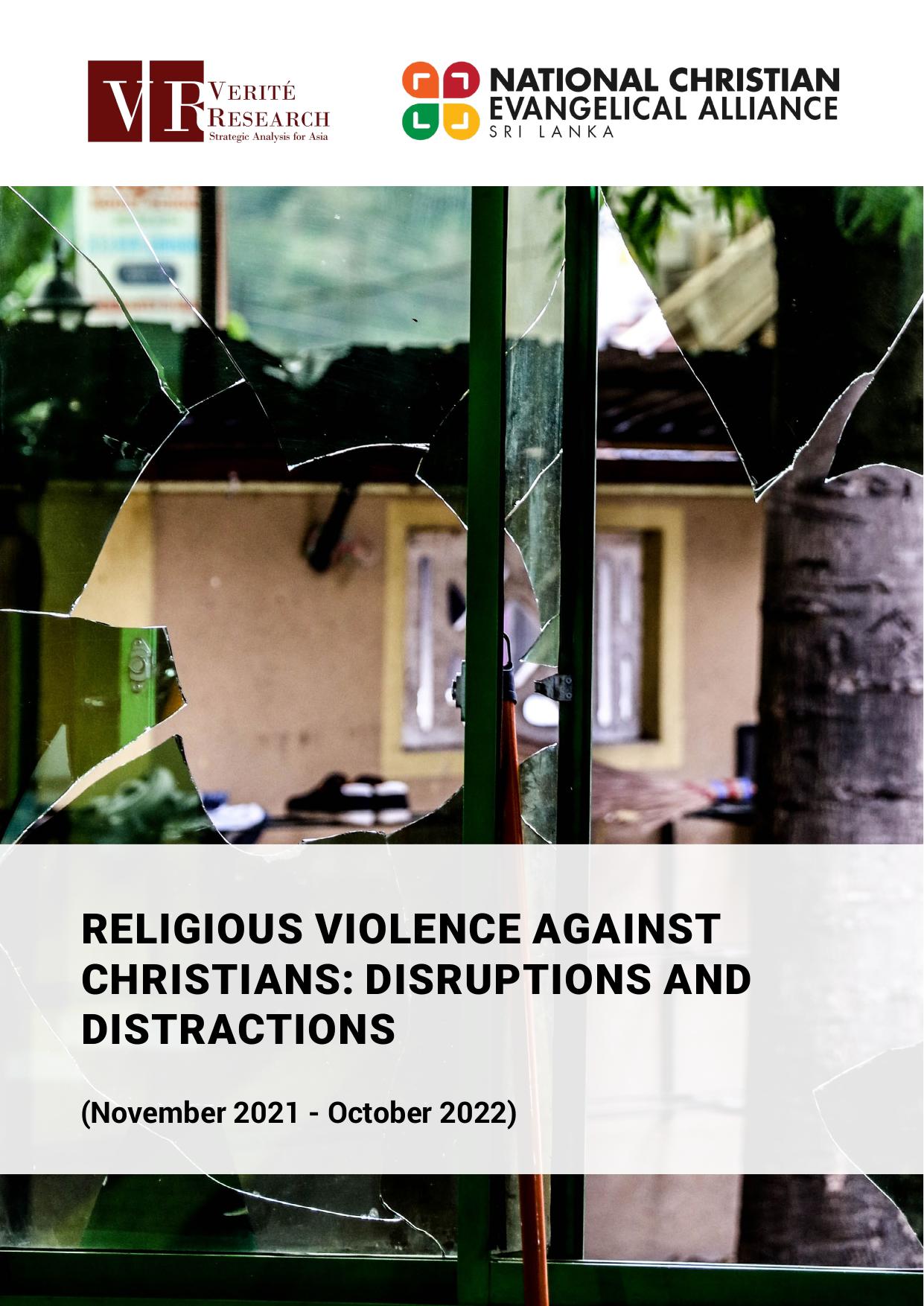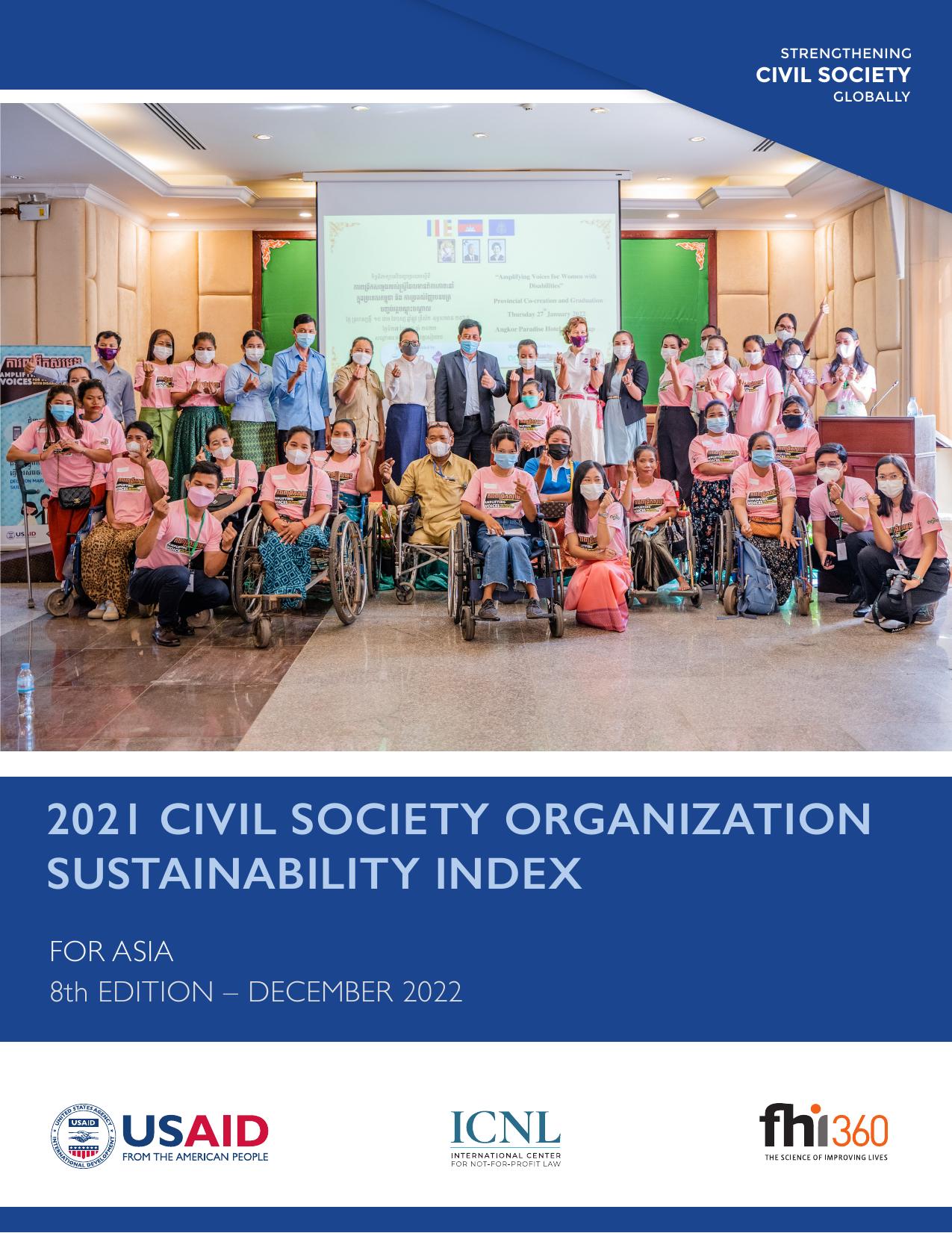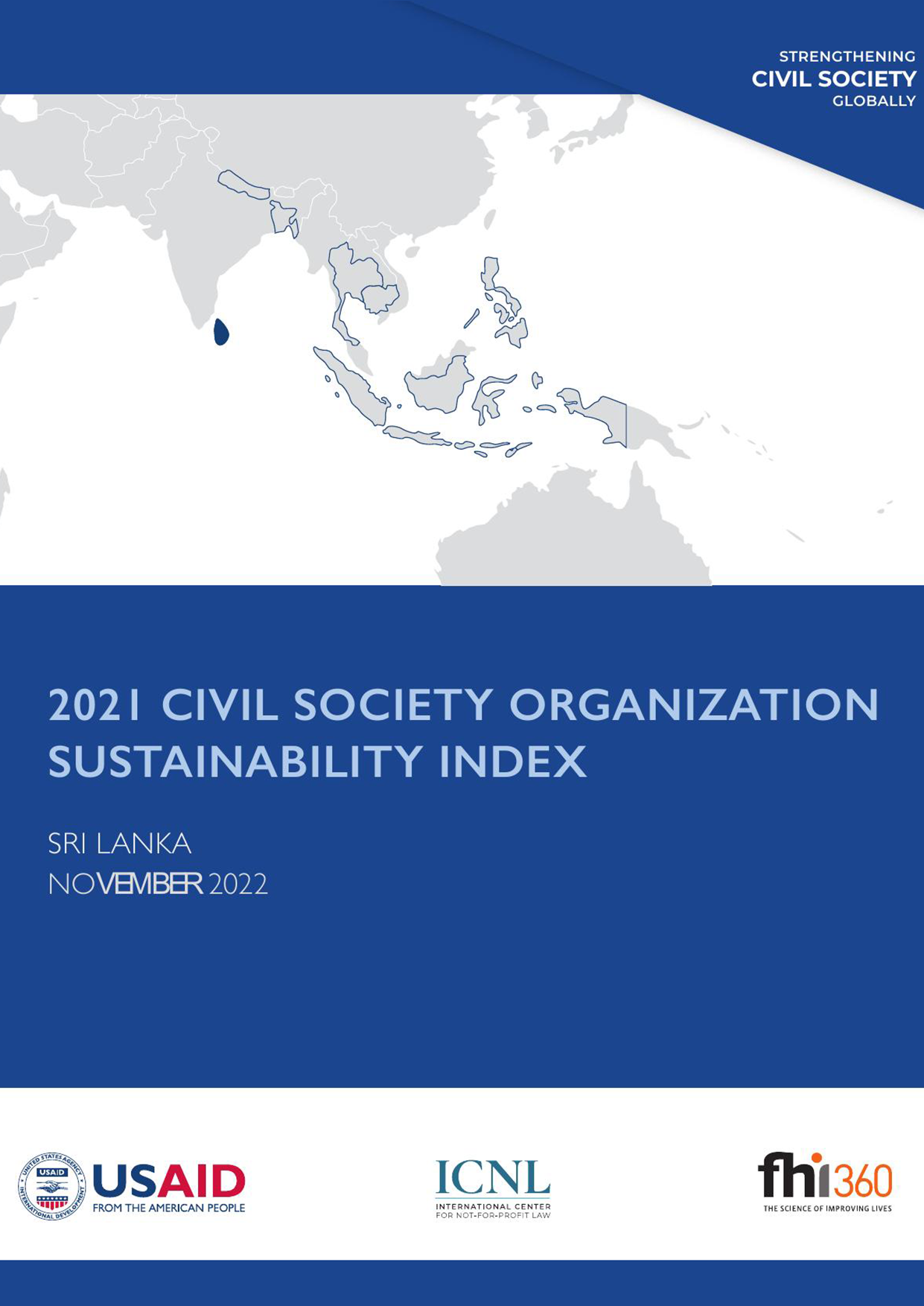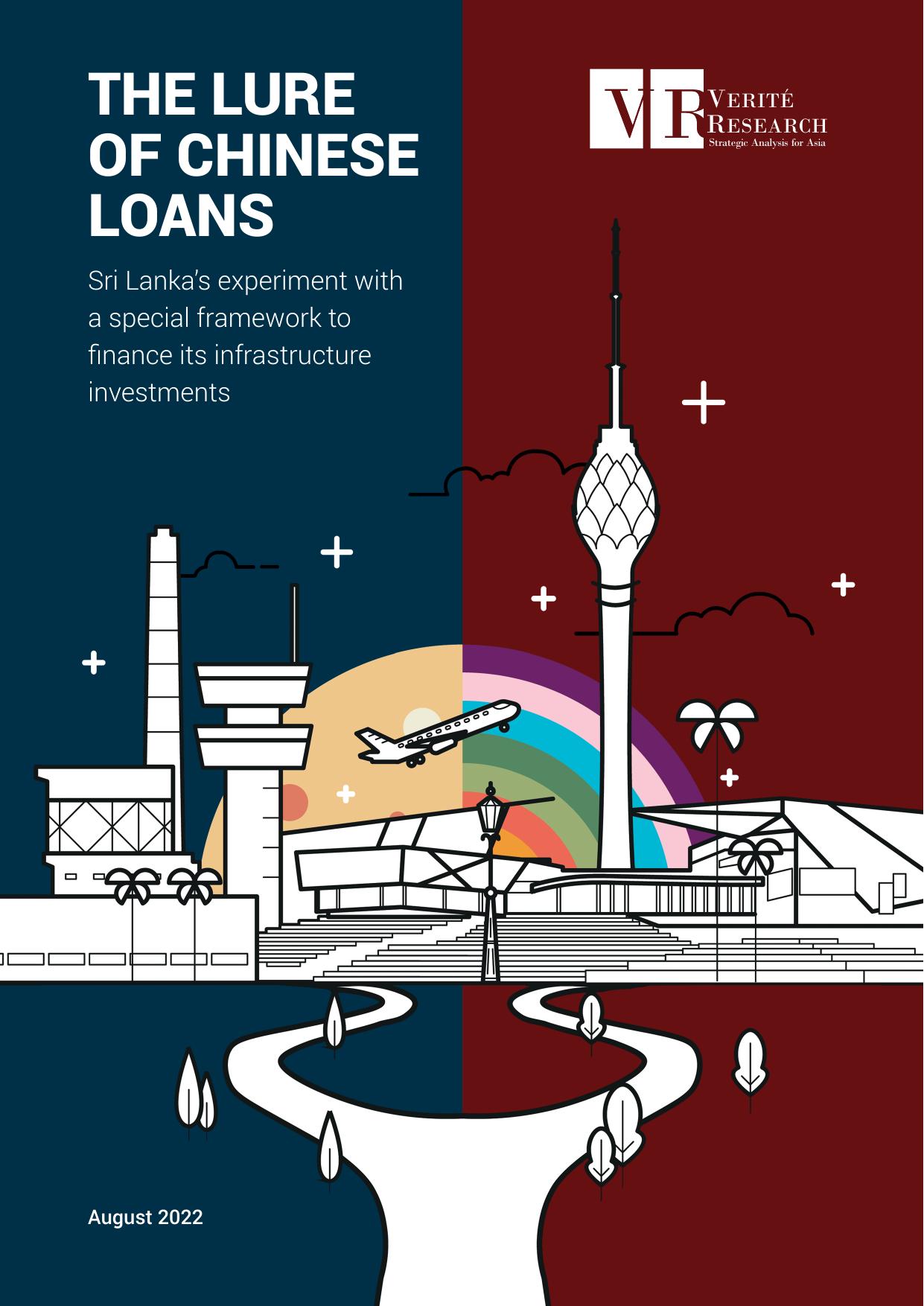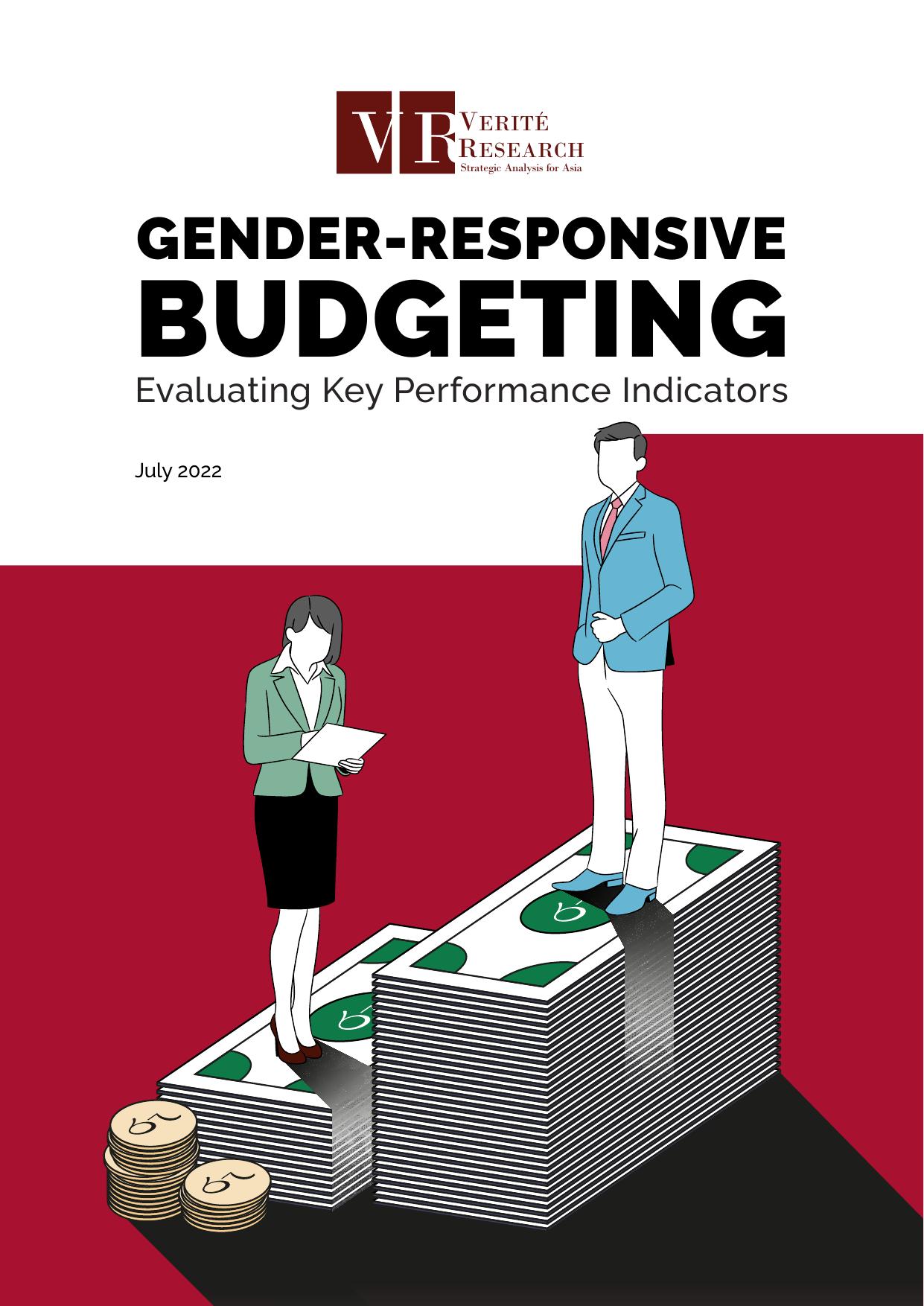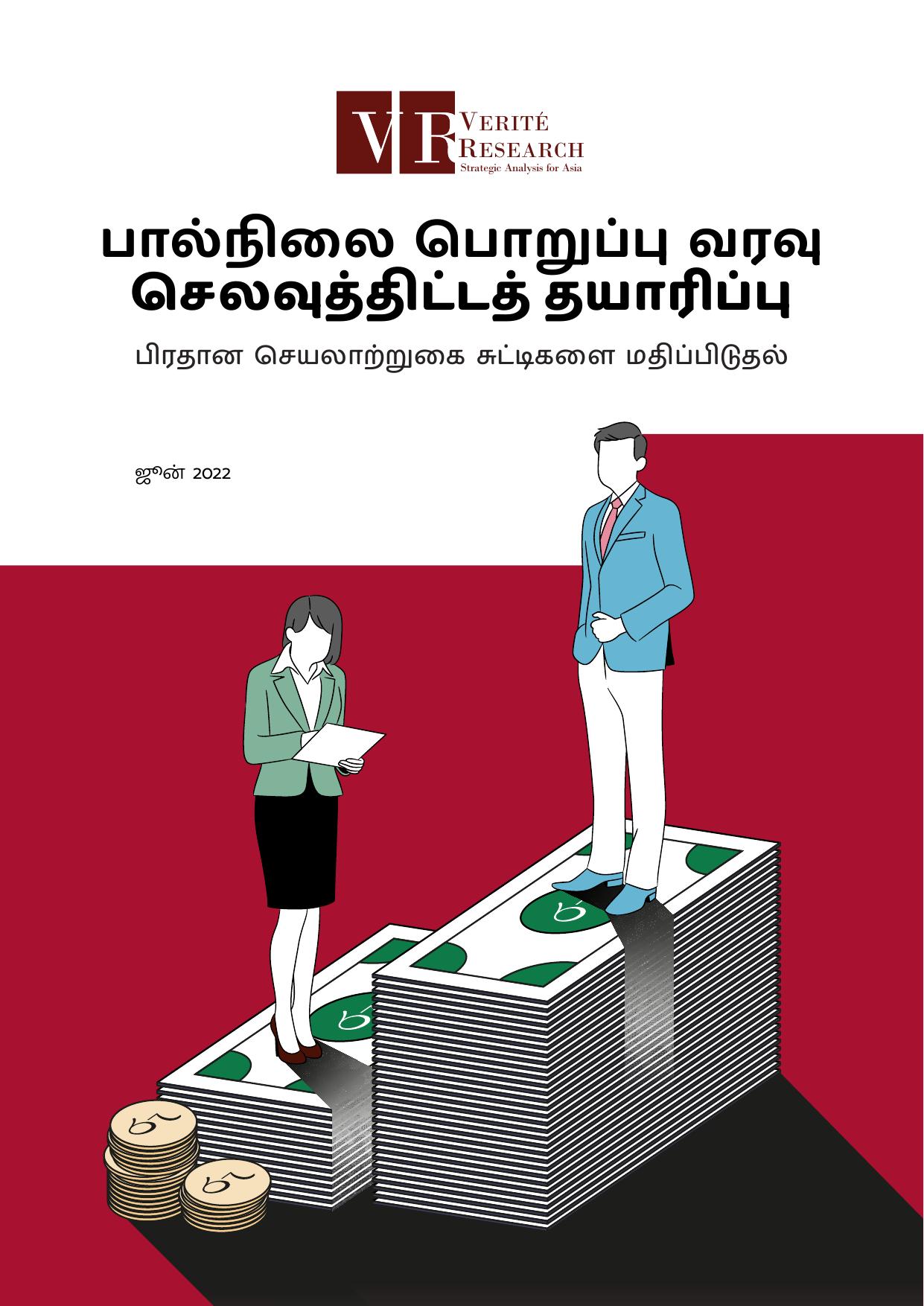Ethno-religious violence is an enduring feature in Sri Lanka irrespective of the changes to the country’s socio-political and economic landscapes. This study offers insights into key patterns of violence directed against Christians between November 2021 and October 2022. A total of 75 incidents of anti-Christian violence were recorded during this period.
The CSO Sustainability Index assesses the sustainability of the CSO sector across several countries in different regions around the world. The various regional editions of the 2021 CSO Sustainability Index assess the civil society sectors in seventy-three countries, including thirty-two in Sub-Saharan Africa, twenty-four in Central and Eastern Europe and Eurasia, eight in the Middle East and North Africa, and Mexico. The CSO Sustainability Index for Asia region, reports on the state of CSO sectors in eight countries in the region: Bangladesh, Cambodia, Indonesia, Nepal, Philippines, Sri Lanka, Thailand, and Timor-Leste.
The Civil Society Organization Sustainability Index (CSOSI) assesses the sustainability of the CSO sector across several countries from different regions. Since its beginning in 1997, it has expanded from covering 18 countries in Europe and Eurasia Region to 72 countries in 2021, including the Middle East, sub-Saharan Africa, and Asia.
Fair and effective recruitment practices have a significant impact on preventing and countering human trafficking. Universally accepted principles of fair recruitment suggest that workers should be well-informed of all aspects of employment, including the nature of the employment, payment mechanisms, access to dispute resolution, and safe return.
This is the second report in a series of two reports on Sri Lanka’s central government budget for the year 2022. The report assesses whether the expenditure allocations and taxation policies are in line with the government’s policy.
ශ්රී ලංකාව තුළ ස්ත්රී පුරුෂ සමාජභාවයට අනුකූල වූ අයවැයකරණය ක්රියාත්මක කිරීම සම්බන්ධයෙන් ශ්රී ලංකා රජය අත්කර ගෙන ඇති අසාර්ථකත්වය මෙම වාර්තාව මගින් ඉස්මතු කෙරේ. රාජ්ය ප්රතිපත්ති සැලසුම් කිරීම දුර්වල වීම හේතුවෙන් සැලසුම් ක්රියාත්මක කරන ආයතන අතර වගවීම දුර්වල වන ආකාරය දක්වන සවිස්තරාත්මක සිද්ධි අධ්යයනයක් ලෙස ස්ත්රී පුරුෂ සමාජභාවයට පදනම් කරගත් ප්රධාන කාර්ය සාධන දර්ශකවලට අදාළ වැඩසටහන සැලකිය හැක. අයවැය ප්රතිපත්ති ක්රියාවට නැංවීමට පෙර මනාව නිර්වචනය කරන ලද රාමු සහ නිසි අධීක්ෂණ යාන්ත්රණයන් ක්රියාත්මක වන බව සහතික කරමින් හොඳ විශ්ලේෂණයක් සිදු කිරීමේ වැදගත්කම මෙම වාර්තාව මගින් අවධාරණය කෙරේ.
Concerns about Sri Lanka losing GSP+ concessions resurfaced with the EU parliament passing a resolution on June 10th, 2021, calling the EU Commission and the European External Action Service (EEAS) to use GSP+ as leverage to push for the repeal or replacement of the Prevention of Terrorism Act (PTA). For Sri Lanka, a major area of concern is the impact of the above on apparel exports to the EU, a key beneficiary of the concessions. Apparel contributes the most to Sri Lanka’s export revenue, accounting for 40-45% of the country’s total exports and the EU is the second largest market for Sri Lankan apparel after the USA, making up 42% of Sri Lanka’s total apparel exports between 2015-2019.
China was the leading provider of external finance to Sri Lanka for infrastructure development during 2010-2016 accounting for 37% of the total. Sri Lanka borrowed USD 5,895 million from China for infrastructure development during this period. More than half of these loans from China (53%) came through a special regulatory framework set up in 2010, enabling the government to entertain unsolicited proposals (USPs) for public funded infrastructure projects circumventing the normal competitive procurement process. This research paper analyses the design and the actual practice of this special regulatory framework. The analysis aims to assess the extent to which the design and the actual execution of the special framework facilitated the realisation of its intended objectives.
This report highlights the failure of the Sri Lankan government in implementing gender responsive budgeting in Sri Lanka. The case of gender KPIs provides a detailed case study of how poor planning of government policies can lead to poor accountability among implementing agencies. The report highlights the importance of conducting good analysis, ensuring that well-defined frameworks and proper oversight mechanisms are in place before proceeding to implement budgetary policies.
இந்த அறிக்கை, இலங்கையில் பால்நிலை பொறுப்பு வரவுசெலவுத் திட்டத்தை நடைமுறைப்படுத்துவதில் இலங்கை அரசாங்கத்தின் தோல்வியை எடுத்துக்காட்டுகிறது.
